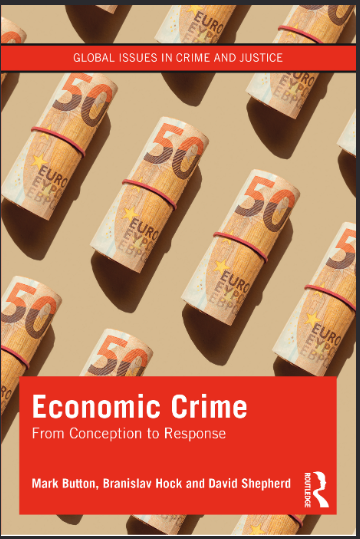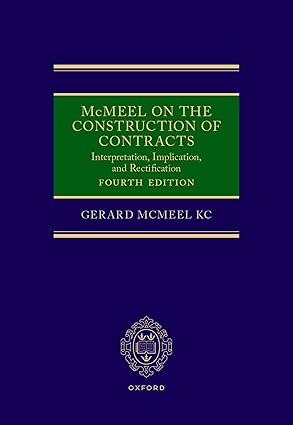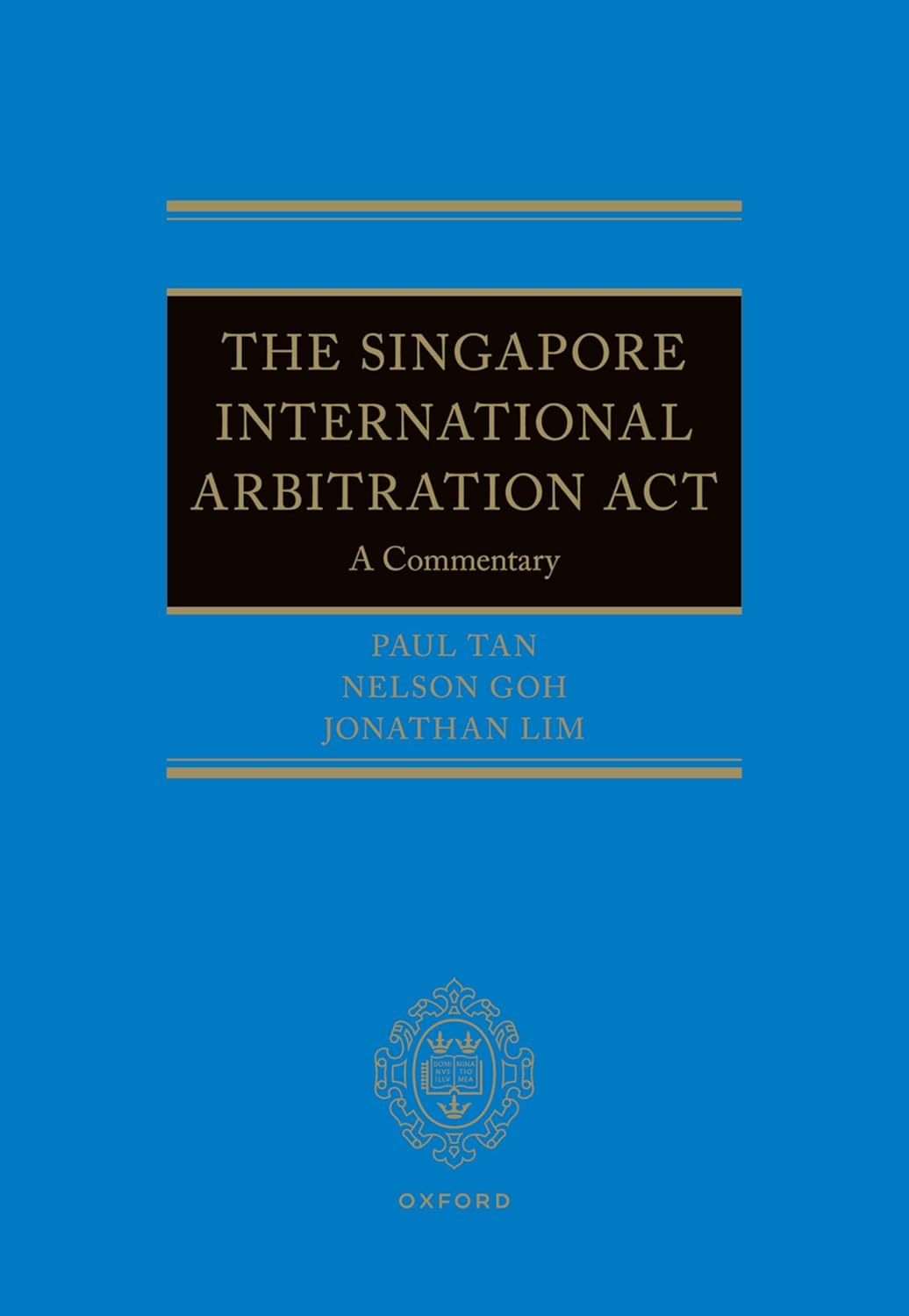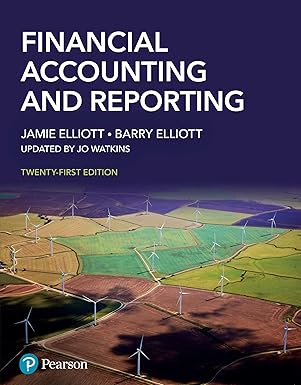Typical of much of the commentary was the focus on aspects of the plan dedicated to traditional crime problems. Given the plan included replacing Action Fraud (with a new reporting system) – an organisation steeped in controversy in the UK, this might seem doubly surprising.1 This typifies the media’s attitude to economic crime: apathy unless a story contains sensation- alist infotainment value (Levi, 2006; van Erp, 2013). Apathy is not restricted to just journalists: economic crime has attracted little serious attention in academia and policing practice. While the study of trad- itional volume crimes such as robbery, burglary and theft have received a great deal of attention by criminologists, economic crimes such as fraud and bribery have largely been ignored (Brooks, 2016; Levi, 2008a; Rider, 2015a). Be it the 2 Economic crime and economic criminology complexity of these crimes or an erroneous perception that economic crimes are victimless crimes, academics and practitioners have not paid sufficient attention to the unique practical and theoretical problems of economic crimes. Economic Crime: From Conception to Response fills this gap by introducing the origins and development of economic crime as a subject of social science research. This chapter explores the term ‘white- collar crime’, the traditional home for the study of most economic crimes, and the term ‘corruption’, and illustrates their strengths and theoretical and practical limitations for the study of con- temporary economic crime problems. The chapter then builds the case for the concept of economic crime, constructing its key components, definition and offering insights into the origin of the crime. The link to corruption – which has attracted more interest amongst scholars and practitioners – is also explored. The chapter will then argue that economic crime deserves far more attention, setting out the case for what the authors call ‘economic crimin- ology’, a new paradigm within criminological research, study and practice. The chapter will end by outlining the rest of the book.
چکیده فارسی
معمولاً در بسیاری از تفسیرها تمرکز بر جنبههایی از طرح اختصاص داده شده به مشکلات جرایم سنتی بود. با توجه به این طرح شامل جایگزینی Action Fraud (با یک سیستم گزارشدهی جدید) - سازمانی که در بریتانیا غرق در بحث و جدل است، ممکن است تعجبآور دوچندان به نظر برسد.1 این نشان دهنده نگرش رسانهها به جرایم اقتصادی است: بیتفاوتی مگر اینکه یک داستان حاوی ارزش اطلاعات سرگرمی هیجانانگیز باشد. (لوی، 2006؛ ون ارپ، 2013). بیتفاوتی فقط به روزنامهنگاران محدود نمیشود: جرایم اقتصادی توجه جدی چندانی را در دانشگاه و عملکرد پلیس به خود جلب کرده است. در حالی که مطالعه جرایم حجمی سنتی مانند سرقت، دزدی و سرقت مورد توجه زیادی از سوی جرم شناسان قرار گرفته است، جرایم اقتصادی مانند کلاهبرداری و رشوه تا حد زیادی نادیده گرفته شده است (بروکز، 2016؛ لوی، 2008a؛ رایدر، 2015a). . خواه پیچیدگی جرایم اقتصادی و جرم شناسی اقتصادی این جرایم باشد و چه تصور نادرست مبنی بر اینکه جرایم اقتصادی جرایم بدون قربانی هستند، دانشگاهیان و دست اندرکاران به مشکلات عملی و نظری منحصر به فرد جرایم اقتصادی توجه کافی نداشته اند. جرایم اقتصادی: از مفهوم تا پاسخ این شکاف را با معرفی خاستگاه و توسعه جرم اقتصادی به عنوان موضوع تحقیقات علوم اجتماعی پر می کند. این فصل اصطلاح «جنایت یقه سفید»، خانه سنتی برای مطالعه بیشتر جرایم اقتصادی، و اصطلاح «فساد» را بررسی میکند و نقاط قوت و محدودیتهای نظری و عملی آنها را برای مطالعه مشکلات جرایم اقتصادی معاصر نشان میدهد. سپس در این فصل، مفهوم جرم اقتصادی، ساخت مؤلفههای کلیدی آن، تعریف و ارائه بینشهایی در مورد منشأ جرم مطرح میشود. پیوند با فساد - که توجه بیشتری را در بین دانشمندان و متخصصان به خود جلب کرده است - نیز مورد بررسی قرار گرفته است. سپس این فصل استدلال میکند که جرم اقتصادی مستحق توجه بسیار بیشتری است و موردی را برای آنچه نویسندگان «جرمشناسی اقتصادی» مینامند، که یک الگوی جدید در تحقیقات، مطالعه و عمل جرمشناسی است، بیان میکند. این فصل با توضیح بقیه کتاب به پایان می رسد.
ادامه ...
بستن ...
Cover image: © Yulia Reznikov / Getty Images
First published 2022
by Routledge
4 Park Square, Milton Park, Abingdon, Oxon OX14 4RN
and by Routledge
605 Third Avenue, New York, NY 10158
Routledge is an imprint of the Taylor & Francis Group, an informa business
© 2022 Mark Button, Branislav Hock and David Shepherd
The right of Mark Button, Branislav Hock and David Shepherd to be identified
as authors of this work has been asserted in accordance with sections 77 and 78
of the Copyright, Designs and Patents Act 1988.
All rights reserved. No part of this book may be reprinted or reproduced or utilised
in any form or by any electronic, mechanical, or other means, now known or
hereafter invented, including photocopying and recording, or in any information
storage or retrieval system, without permission in writing from the publishers.
Trademark notice: Product or corporate names may be trademarks or registered trademarks,
and are used only for identification and explanation without intent to infringe.
British Library Cataloguing-in- Publication Data
A catalogue record for this book is available from the British Library
Library of Congress Cataloging- in- Publication Data
Names: Button, Mark, author. | Hock, Branislav, author. |
Shepherd, David (David William James), author.
Title: Economic crime : from conception to response / Mark Button,
Branislav Hock and David Shepherd.
Description: Abingdon, Oxon ; New York, NY : Routledge, 2022. |
Series: Global issues in crime and justice |
Includes bibliographical references and index. |
Identifiers: LCCN 2021052831 | ISBN 9780367533861 (hardback) |
ISBN 9780367533878 (paperback) | ISBN 9781003081753 (ebook)
Subjects: LCSH: Commercial crimes. | White collar crimes. |
Crime–Economic aspects.
Classification: LCC HV6768 .B87 2022 | DDC 364.16/8–dc23/eng/20220106
LC record available at https://lccn.loc.gov/2021052831
ISBN: 978-0- 367- 53386- 1 (hbk)
ISBN: 978-0- 367- 53387- 8 (pbk)
ISBN: 978-1- 003- 08175- 3 (ebk)
DOI: 10.4324/ 9781003081753
Typeset in Times New Roman
by Newgen Publishing UK
ادامه ...
بستن ...










